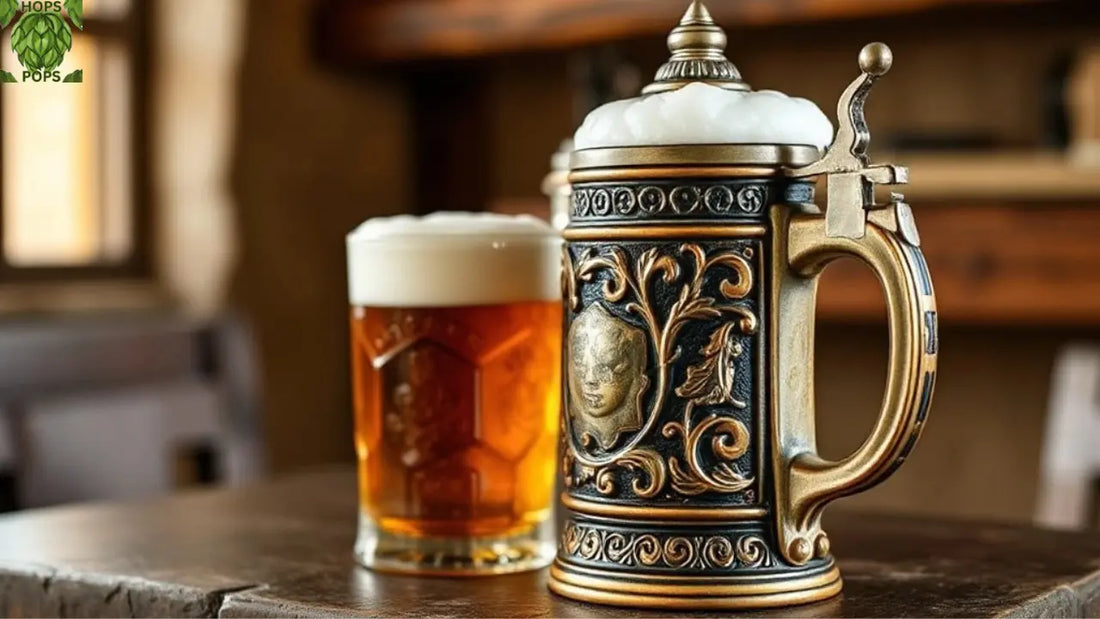
History of Beer
Share
Table of Contents
- Origins in Ancient Mesopotamia
- Role in Ancient Societies
- Spread to Ancient Egypt and Beyond
- The Modern Craft Beer Movement
- FAQs
- Conclusion
Origins in Ancient Mesopotamia
Ah, the story of beer! It all begins in the enchanting land of ancient Mesopotamia, where the first whispers of beer production can be traced back to around 3500-3100 BCE. This was a time of great change, known as the Neolithic Revolution, when our ancestors traded in their nomadic lifestyles for the joys of settled farming. With the domestication of wild cereals like barley and wheat, the stage was set for the magic of beer-making to unfold.
The Sumerians, those clever folks, were the first to whip up a recipe for beer, treating this bubbly brew as both a nutritional powerhouse and a delightful intoxicant. Legend has it that beer was discovered by accident when grains left soaking in water fermented thanks to wild yeasts. Voilà! A rudimentary form of beer was born, quickly becoming a beloved staple in Sumerian society. And guess what? It wasn't just the adults enjoying this golden elixir; even the kiddos got a taste, proving just how integral beer was to daily life!
By the way, if you're a beer enthusiast, take a look at our Friday beers | Unisex Heavyweight Crewneck T-Shirt — perfect for beer lovers! 
Role in Ancient Societies
In the grand tapestry of ancient societies, beer was more than just a drink; it was a vital part of life! This bubbly beverage was a dietary staple, celebrated for its nutritional goodness and even used as a form of currency. Imagine this: workers building the pyramids in ancient Egypt were often paid in beer! Talk about a refreshing paycheck!
But beer's significance didn't stop there. It was a social lubricant, bringing people together for gatherings and often featured in religious offerings to appease the gods. The Sumerians even had a goddess of beer, Ninkasi, who was honored in songs and rituals. The cultural weight of beer is evident in ancient texts, including the famous Epic of Gilgamesh, where beer is celebrated as a source of joy and merriment.
Spread to Ancient Egypt and Beyond
From the fertile lands of Mesopotamia, beer made its way to ancient Egypt, where it was embraced and transformed. The Egyptians concocted a variety of beer recipes, experimenting with different grains and flavors. Beer became a beloved staple across all social classes, with many Egyptians brewing their own at home, often adding delightful ingredients like dates and herbs.
In Egypt, beer wasn't just a daily refreshment; it played a crucial role in religious ceremonies. It was offered to the gods during rituals and was a key part of funerary practices. The Egyptians believed that beer had protective qualities, often including it in burial goods to ensure the deceased had sustenance in the afterlife.
The art of brewing spread beyond Egypt, influencing cultures across the Mediterranean and beyond. The Greeks and Romans adopted beer into their diets, although wine often stole the spotlight. Still, beer remained a favorite, especially among the common folk.
The Modern Craft Beer Movement
Fast forward to today, and we find ourselves in the midst of a craft beer revolution! In recent decades, a wave of craft breweries has emerged worldwide, focusing on quality, flavor, and traditional brewing techniques. This movement has sparked a renewed interest in diverse beer styles and local ingredients, leading to a vibrant renaissance in beer culture.
Craft breweries are all about small-batch production and experimentation, resulting in an exciting array of flavors and styles. From IPAs to stouts, the craft beer scene encourages innovation and creativity in brewing. Plus, many craft breweries prioritize sustainability and local sourcing, reconnecting beer with its agricultural roots.
The craft beer movement has also fostered a sense of community, with breweries serving as social hubs where people gather to enjoy good company and quality brews. Beer festivals and tasting events have become all the rage, celebrating the rich diversity of craft beer and uniting enthusiasts from all walks of life.
FAQs
What is the oldest known recipe for beer?
The oldest known recipe for beer hails from ancient Sumer, dating back to around 1800 BCE, detailing a method of brewing with barley.
How did beer influence ancient economies?
Beer was often used as a form of currency in ancient societies, with workers being compensated in beer for their labor, especially in monumental projects like the pyramids.
What are the main ingredients in beer?
The primary ingredients in beer are water, malted grains (usually barley), hops, and yeast. Each ingredient plays a vital role in shaping the flavor and character of the beer.
Conclusion
The history of beer is a captivating journey that mirrors the evolution of human society. From its humble beginnings in ancient Mesopotamia to its celebrated role in modern craft brewing, beer has woven itself into the fabric of cultural and social life for millennia. As we continue to explore and innovate in brewing, the legacy of beer will undoubtedly endure, connecting us to our past while shaping our future.
